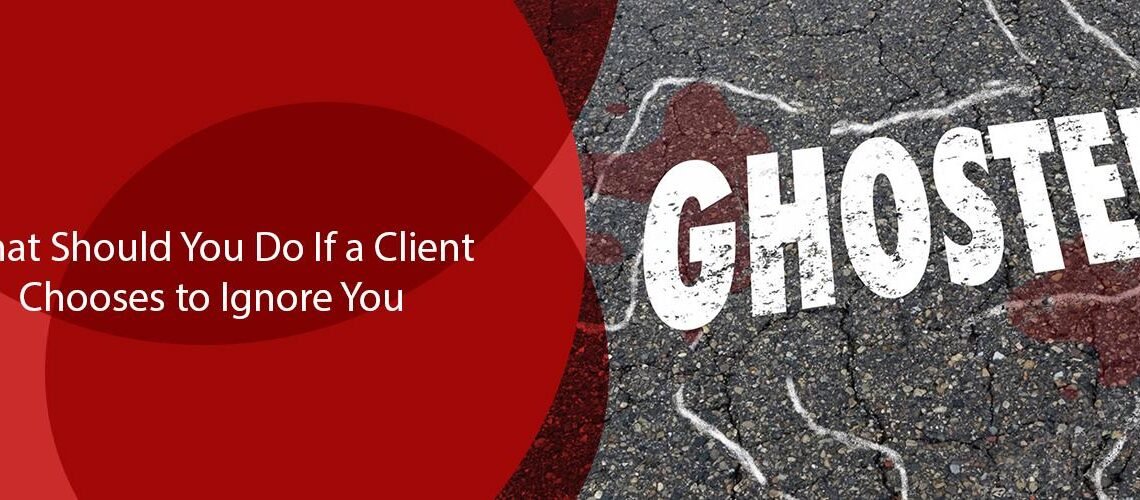Ghosting is a phenomenon that no longer only affects romantic or dating relationships. If you continue in business for longer than a few months, chances are it will also happen to you. As if managing your employees, raising money, and marketing weren’t enough, another obstacle is exactly what every entrepreneur needs.
It’s really upsetting when a client stops talking to you and strangely stops responding. After all, why would your client have hired you in the first place if they weren’t interested in having the work you’re performing for them completed?
Follow these four simple measures to deal with the situation and make sure you and your company are fully protected if it occurs to you.
On a side note, if you are looking for a reliable internet plan that promises fast speeds so that you are always contactable for your clients, call Xfinity’s customer services helpline to learn more about their internet plans or simply visit here.
Keep Calm
When a key client fails to reply, it’s easy to panic. This is especially true for accounts that contribute significantly to the revenue of your business.
However, as was already mentioned, it’s not unusual for a customer to ghost a company. As such, try not to let worry or bewilderment control your reaction. You need to keep a cool, even, and professional tone because panic usually only results in unproductive or emotionally laden interactions.
But before you approach your radio-silent customer, keep these points in mind:
- You are still unsure about what transpired. Perhaps your client simply chose to disappear. But it’s also true that unexpected things happen in everyone’s lives, and some of them have a big impact.
- Whether you want to continue working together or not will determine the best course of action. It’s necessary to conduct a thorough analysis of the circumstance before making that choice.
- Being cool and collected allows you to examine the situation calmly and objectively, which helps you make better decisions.
So take a few calm breaths, practice meditation, engage in physical activity, or do whatever else you need to do to overcome panic.
Step Back and Examine the Circumstance
Where are you in the client’s work cycle? Once you have completed the project and your client has ghosted you shortly after you issued the final invoice, your alternatives will appear substantially different at the beginning of the project than they will at the end.
Take into account how much time and effort have been invested into the work you are doing for the client based on your company objectives and ambitions. Compare the client’s feedback to that of your organization. So far, how responsive have they been? Do they currently owe you their fees?
Recheck your contract as well as any documented emails, texts, or communications that were exchanged between your business and the client. Check your legal position and your contract for any clauses that might apply to the current scenario. You should consider those in your overall evaluation.
Now that you are more aware of the larger picture, weigh your options to determine what your next move and ultimate objective should be. Do you seek compensation for past unpaid work? Do you completely cut your losses, formally end the relationship, and move on? Is another plan more likely to help you achieve your objectives?
Before proceeding, decide on your desired outcome.
Send a Courteous Email (or two) inquiring as to What Occurred
You are now prepared to connect and check in. Depending on the nature of your connection with the client, write a friendly, non-accusatory communication (first via email or text) to address the situation.
Try to avoid coming out as aggressive. Read the follow-up email aloud to a dependable team member or coworker and get their feedback to make sure you strike the proper tone.
Your initial communication should only ask the client if they are okay, if they are unexpectedly out of town, or if they are dealing with a personal emergency. Try again if you don’t hear back after a week or so and you don’t have any other ways to get in touch with them.
This time, inform them that unless you hear otherwise, you will be finishing the project and invoicing for any outstanding fees.
If You Do Not Receive a Response, Move On
This is a challenging aspect for many business owners. You must genuinely carry out the directive you previously gave. It’s time to call it quits.
Close the file and send a charge for any overdue payments if the client hasn’t contacted you within the allotted time. You can, if you’d want, add a note of reconciliation along the lines of, “We hope all is okay, and if you would like to resume our work in the future, feel free to contact us.”
Then shift your focus to a fresh subject. What comes next for your company? Make a new plan by engaging in some imaginative brainstorming.
Final Thoughts
Accept the lesson this experience has taught you, and use it to guide your future efforts. Which terms of the contract could have facilitated a quicker or more thorough resolution of this dispute?
Consider including a clause that allows your small business, among other things, to convert a flat charge into an hourly rate, just in case the client doesn’t answer and you need to terminate the agreement.







